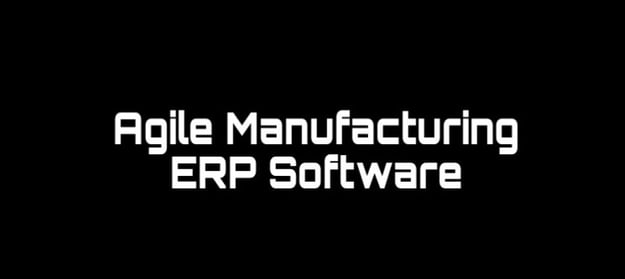Choosing the correct ERP system for an agile-oriented business can be complicated. With various factors such as price or implementation to consider, how does a production facility find the most compatible system?  As agile-manufacturing project managers are finding themselves asking these questions, many of them are moving toward Microsoft Dynamics 365 for Operations as a solution.
As agile-manufacturing project managers are finding themselves asking these questions, many of them are moving toward Microsoft Dynamics 365 for Operations as a solution.
Dynamics 365 is becoming a top choice for manufactures who favor agility. This ERP system offers advantages such as customization, effectiveness, and accuracy, which will further enhance a facility through a healthy mixture of flexibility and efficiency.  This cost-conscientious system is an especially good fit for modest to average-sized businesses, but is generally compatible with facilities of any size in various industries such as construction, manufacturing, distributing, data, medical, and a broad array of others. Not only is this ERP system practical, it also has many layers of benefits that support agile principles in a global supply chain, such as:
This cost-conscientious system is an especially good fit for modest to average-sized businesses, but is generally compatible with facilities of any size in various industries such as construction, manufacturing, distributing, data, medical, and a broad array of others. Not only is this ERP system practical, it also has many layers of benefits that support agile principles in a global supply chain, such as:
These perks have allowed for agile manufacturing operations to optimize production and agility, but there is always room for growth. ERP systems such as Dynamics 365 for Operations is just a start - advanced planning and scheduling systems (APS) are next-level add-ons that really dial-in on the finer points of agility.
Planning and Scheduling Add-Ons Microsoft Dynamics 365 for Operations
Advanced planning and scheduling systems (APS) are becoming a preferred choice for many agile manufacturing operations. Integration of these APS systems allow data importation from 365 for operations such as:
- Work Center Groups
- Machines, Items, & Inventory
- Sales, Purchase, & Production Orders
- Routing Lines & Production Order Components
Utilization of Dynamics 365 for Operations and APS can take a production facility in the next step of coming closer to overall agile production efficiency within your supply chain. Enhanced planning, scheduling and simulations that leverage the real-time production feedback data simply yield a higher degree of planning refinement that can be added-on, thereby extending the visibility and insight to your live operation, in real-time.
Dynamics 365 Is a Strong ERP—Here’s Why You Still Need APS
In this article, you’ve seen how Microsoft Dynamics 365 gives agile manufacturers a flexible ERP backbone—supporting waste tracking, multi-currency, Kanban boards, regulatory demands, BI tools, and more.
But even a powerful ERP like Dynamics can’t, by itself, deliver fully optimized schedules, realistic delivery dates, or true visibility into capacity and bottlenecks.
That’s exactly what our white paper, “Why ERP Alone Is Not the Answer,” is about. It explains why ERP systems are great at transactions and reporting but not designed for constraint-based capacity management and schedule optimization—and how adding Advanced Planning and Scheduling (APS) on top of ERP unlocks the next level of agility.
In this guide, you’ll learn how to:
- Move beyond tribal knowledge and guesswork to make strategic capacity management decisions based on real data
- Quote and keep realistic delivery dates instead of padding lead times or expediting at the last minute
- Minimize labor and inventory costs while still meeting customer demand
- Maximize throughput and revenue predictability by scheduling with agility around real constraints
- Build optimized production schedules that your teams can actually execute and improve over time
If you’re using (or considering) Dynamics 365 for agile manufacturing and wondering how far ERP alone can take you, this white paper shows where APS fits in—and how to start that conversation with operations, planning, and IT.
Watch: How to Collaborate with IT on ERP + APS Projects
APS Resources